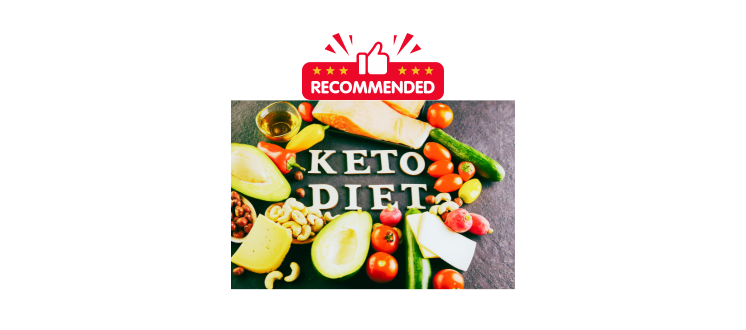
Keto-Friendly Foods
The keto diet, which involves significantly reducing carbohydrate intake and increasing fat consumption, has gained popularity for its potential health benefits. Here are some of the main advantages.
Supports Weight loss. By restricting carbohydrates, the body goes into a metabolic state called ketosis, where it starts burning fat for fuel instead of glucose. This can lead to effective weight loss.
Improved blood sugar control. Reducing carbohydrate intake can help stabilize blood sugar levels, making the keto diet potentially beneficial for individuals with diabetes or prediabetes.
Reduces appetite. The keto diet can lead to a decrease in hunger, as the body is using fat for energy.
Supports heart health. Some studies suggest that the keto diet may help lower "bad" cholesterol (LDL) and triglycerides while increasing "good" cholesterol (HDL).
May Reduce the risk of certain diseases. The keto diet has been studied for its potential benefits in managing conditions like epilepsy, Alzheimer's disease, and Parkinson's disease.
Keto-Friendly Foods
The keto diet focuses on high-fat, moderate-protein, and very low-carbohydrate foods. While some people decide to go on a strict keto diet, you can also use the principles as a guideline to plan your meals. Either way, it's good to know what foods are keto-friendly. Here are some suggestions.
Proteins
Meat: Beef, lamb, pork, poultry, organ meats
Fish and seafood: Salmon, tuna, shrimp, cod, mackerel
Eggs: Whole eggs, egg whites
Dairy: Cheese (hard cheeses like cheddar, and Parmesan), heavy cream, butter, full-fat Greek yogurt
Nuts and seeds: Almonds, walnuts, chia seeds, flaxseeds
Healthy Fats
Oils: Olive oil, avocado oil, coconut oil, MCT oil
Avocados
Olives
Low-Carb Vegetables
Remember that not all carbs are bad. Complex carbohydrates, which include many vegetables, provide lots of nutrition while being less fattening. They also have less impact on your blood sugar. Here are some "good" carbs to include in your diet.
Leafy greens: Spinach, kale, lettuce
Cruciferous vegetables: Broccoli, cauliflower, Brussels sprouts
Other low-carb vegetables: Asparagus, zucchini, bell peppers, cucumbers, mushrooms
Other Keto-Friendly Foods
Full-fat dairy: Full-fat milk, full-fat cottage cheese
Dark chocolate (70% or higher cocoa)
Unsweetened tea and coffee
Sugar-free sweeteners: Erythritol, Stevia
Guidelines to Follow on a Keto Diet
- Make sure it's right for you. If you're considering a keto diet, it's recommended to consult with a healthcare professional to determine if it's right for you and to discuss any potential risks or side effects.
- Read product labels. Many foods contain "hidden" sweeteners and simple carbs.
- Be wary of prepared foods. When eating or ordering out, try to determine what ingredients are used. Look for health-conscious restaurants and delis that are transparent about their ingredients.
- Pay attention to side effects. Some people experience side effects on the keto diet such as constipation, digestive discomfort, or leg cramps. If you experience side effects, consult with your health care provider.
- Consider supplements. A strict keto diet may cause nutritional deficiencies, especially Vitamin C, B vitamins, and minerals such as selenium, magnesium, and phosphorus. Taking a multivitamin/mineral complex may prevent this.
- Customize your diet. Everyone's nutritional needs and goals are not the same. You're likely to have better results if you create a custom keto diet that works for you!